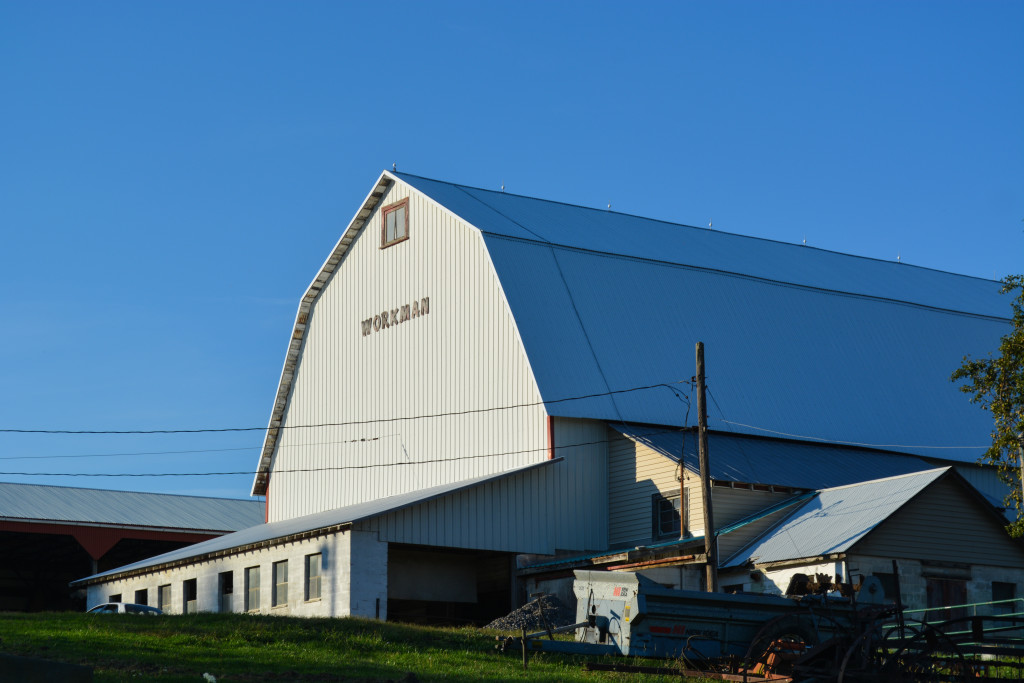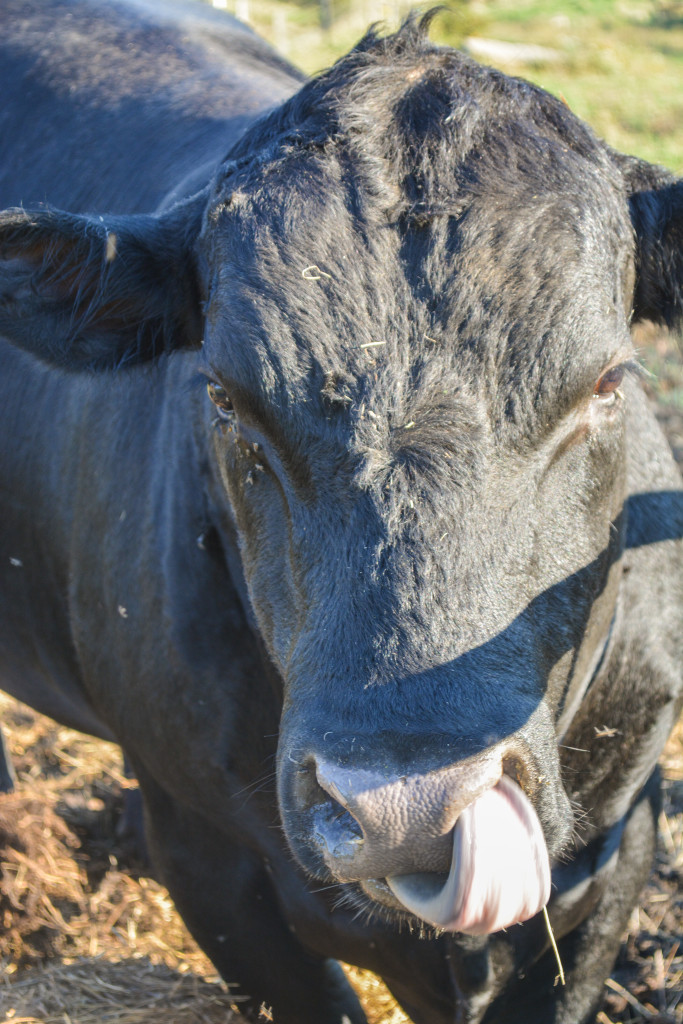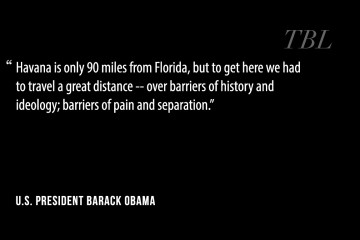Out to Pasture: Why America’s Family Farms are Becoming a Rare Breed
For the past ten years, Frostburg State University has hosted the Appalachian Festival, a three day gathering and celebration of the distinct cultural qualities of the Appalachian region, particularly Western Maryland and environs.
The festival attracts artisans, local cooks, traditional music, and enough politically-active, environmentally-aware individuals to seemingly challenge Asheville, North Carolina, as the hipster capitol of Appalachia.
Also featured at the festival is the Appalachian Symposium, an afternoon filled with presentations concerning regional issues.
This year, one such presentation was provided by Frostburg State University Associate Professor Skott Brill. A member of the philosophy department, Brill educated festivalgoers on the origin of the food consumers eat. His presentation, entitled “Old MacDonald Had a Farm, E-I-E-I-OMG!,” explored the route taken by Big Macs, hot dogs, and chicken wings before they make their way onto the dinner table.
The presentation attempted to clarify “the misconception about where food comes from and how it is produced.” Brill, who stated that a “cloak of secrecy” shrouds the meat industry, asserts that the notion of our meat originating from “quaint, idyllic places” is misinformed and, ultimately, false.

Brill, who has written a book on this very topic, explained the prevalence of what is known as “factory farms:” large, corporate-owned farms that often raise livestock in massive quantities under poor living conditions.
Factory farms, which often provide the meat for the restaurant industry, national retail chains, and even public schools, almost invariably employ what is known as “confined animal operations:” the severe restriction of living space for livestock.
In the poultry industry, chickens live their entire lives inside massive holding facilities. The birds are fed to the point that their bones cannot support their weight to move, provided that they find enough space to walk a few paces.
Chicks in the egg industry face a short-lived life of egg-laying and starvation to promote ovulation. That’s just the female chicks. Male chicks in egg farms are killed upon birth.
Other industries aren’t much prettier. Piglets are forced to suckle through the bars of cages, in which their obese mothers are confined for the sole purpose of getting fatter. Cattle are fed diets of only grain and antibiotics, the latter of which are necessary due to cattle’s inability to maintain health on a diet of the former. Failure to remove massive amounts of excrement leads to the creation of “manure lagoons,” giant, festering pools of animal fecal matter which can run over and contaminate ground water.
These aren’t the farms of Old MacDonald. Rather, they feel more at home in Sinclair’s The Jungle.
At the end of the day, Brill states, “traditional family farms don’t feed American anymore.”
Brill describes Western Maryland as a rare holdout in terms of factory farms. Food & Water Watch, a national organization dedicated to “a healthy future for our families and for generations to come,” provides data on factory farms and notes that Garrett, Allegany, and Washington County are devoid of farms utilizing the confined approach to farming.
After Brill’s presentation, attendees at the festival prepared for a complimentary meal featuring locally-sourced selections, including blackberry cobbler and fresh salad.
Meanwhile, a mere two miles from the festival and Frostburg campus, a family farm lies in a shallow valley. A white barn rises from rolling green hills, splattered with black cows grazing in the late afternoon sun.
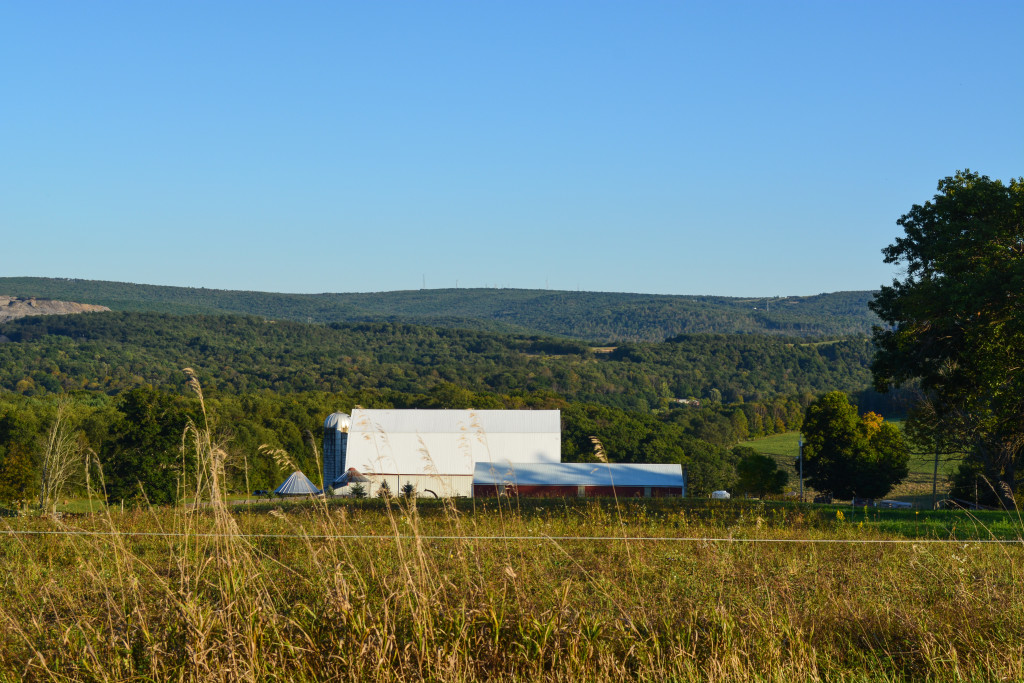
On this day, as on most days, one can find local farmer Doug Workman attending to his cows, collecting hay, or moving farm equipment.
Workman’s name is familiar to local residents in the Frostburg region. The Workman dynasty not only claims this picturesque farm, but also the much-loved Frostburg Freeze and Workman’s Laundry in downtown Frostburg.
The Workman farm has been a family institution since 1932, when Doug Workman’s grandfather purchased the land. Through the years, the farm would raise both beef and dairy cows, as well as a few pigs along the way.
These days, Workman deals exclusively with beef cows, of which he tends to keep about 75. They can be found all over the farm, out grazing in the fields, or weaving through trees in the woods. In total, the Workman farm is comprised of about 350 acres of land, much of which the cows are free to roam.
Workman raises his cows himself and can sell cattle at auctions, where other farmers (or butchers) purchase the animals. His family often use the cattle to stock their own freezers, as it would be nigh impossible to find fresher beef.
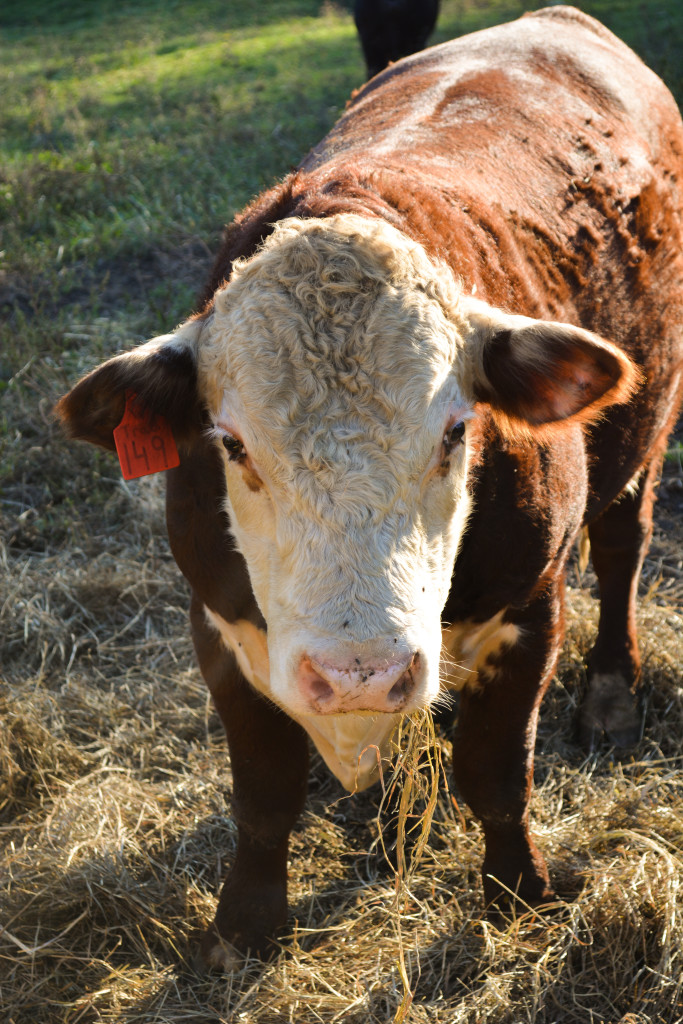
His cows are mainly grass-fed. They get the occasional grain, but they’re free to eat as much grass or hay as they like. They’re devoid of regular antibiotics, with the exception of legitimate medicinal use. Workman keeps cows for years at a time, breeding them and allowing calves to graze with their mothers until it’s necessary to wean them. Nowhere can a “manure lagoon” be found.
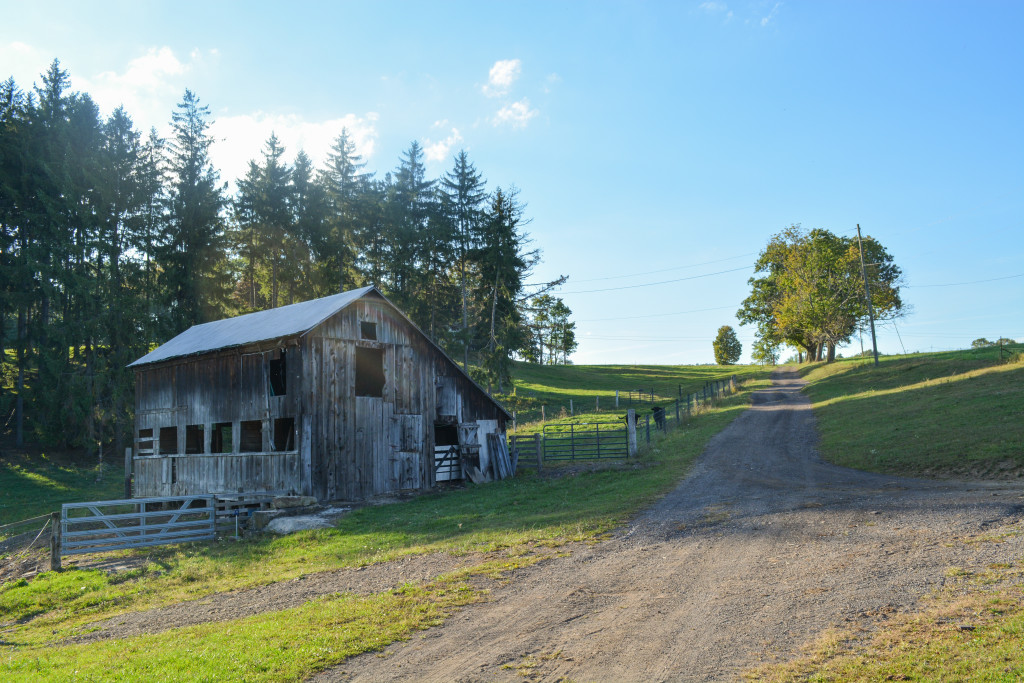
This family owned farm provides a striking contrast to the industrial landscape that seems to dominate the meat industry today.
How did the farming industry graduate from local, family farms to the international giants of Purdue and Tyson? The answer, Workman believes, lies in consumers.
The farming industry, like every other capitalist industry, is subject to the market of supply and demand. Small farms like Workman’s, with 75 cows, are unable to produce copious numbers of livestock to fulfill the demands of American grocery stores. American consumers want juicy, flavorful steaks that are mostly produced through grain-fed beef.
Workman, who also works for the State Highway Administration, describes the family business as less of a business endeavor and more as a hobby. When asked if farming is still viable as a full-time gig, he stated that he “feels lucky if [he] breaks even.” Otherwise, the farm is just a way for him “to stay out of trouble.”
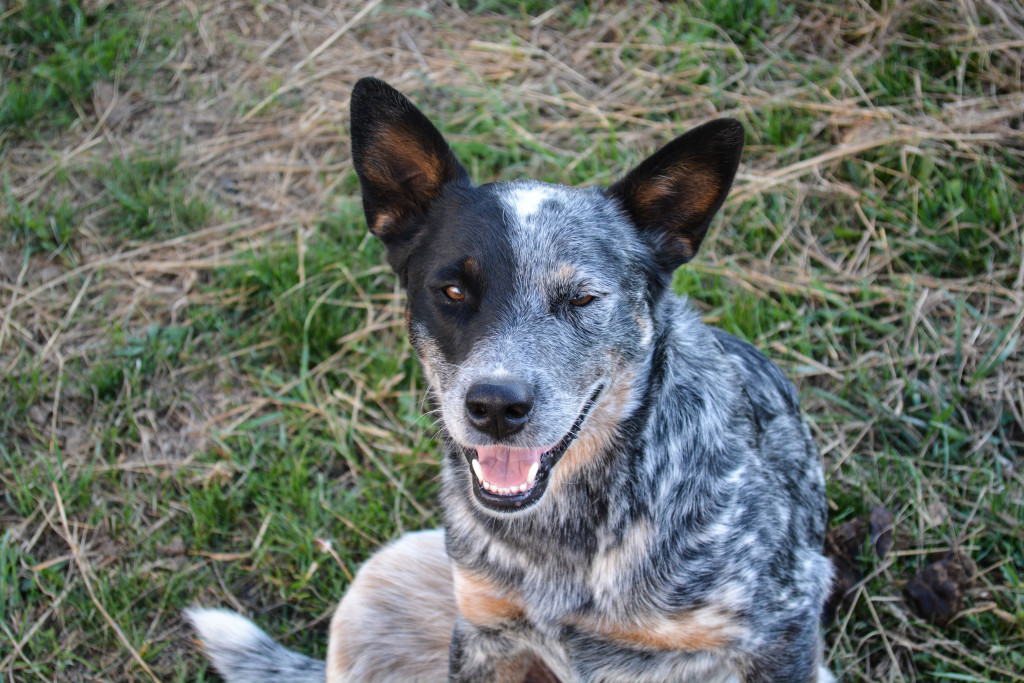
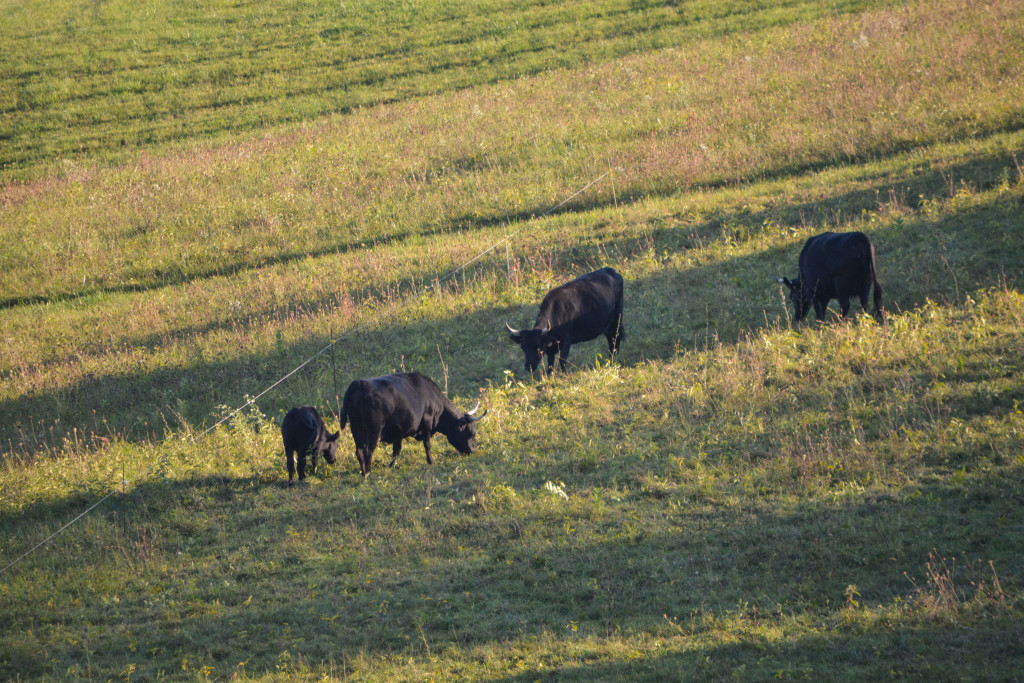
The relationship between factory farms and family farms is more complex than the relationship between Wal-Mart and the mom and pop stores of Main Street. “There’s no excuse for anyone in the world to be hungry,” Workman asserts. He states that he is not farming “nearly what he could be.” But small-time farmers like Doug Workman couldn’t afford to farm full-time. Today, Workman states, “there would be no way to feed the world if we didn’t have factory farms. The [family] farms aren’t there anymore. People buy them up and create bigger farms. The bigger you get, the cheaper you can buy things for the farm.”
Family farms also face hurdles in the political arena, as well, both on a national and international level. Workman is a member of both the Farm Bureau and the Cattleman’s Association, where farmers are given opportunities to voice concerns and an arena to attempt to sway legislation.
Internationally speaking, in recent years under the current administration, the United States has witnessed an increase of imported livestock and meat. Indeed, in 2014 alone, the United States imported 2,357,990 cows for beef consumption. Foreign competition makes it harder for local farmers to turn a profit and forces factory farms into producing more meat, exasperating the problem.
Yet the world keeps on turning. In 2014, Americans consumed a total of 24.1 billion pounds of beef. Consumers demand more chicken nuggets, bigger hamburgers, and juicer steaks while the Doug Workmans of America keep tending their cows.
Family farms are a rare breed in Appalachia and the US for a reason. The Appalachian Festival at Frostburg State provides an opportunity to discuss the endangered nature of these farms and the consequences the American people face as a result of their consumption.
The national conversation on factory and family farms will surely continue to evolve and likely intensify. In the meantime, one can find Doug Workman on his own farm, taking care of his fields and tending his cattle, as his grandfather and father did before him, and as his children may do after him.
